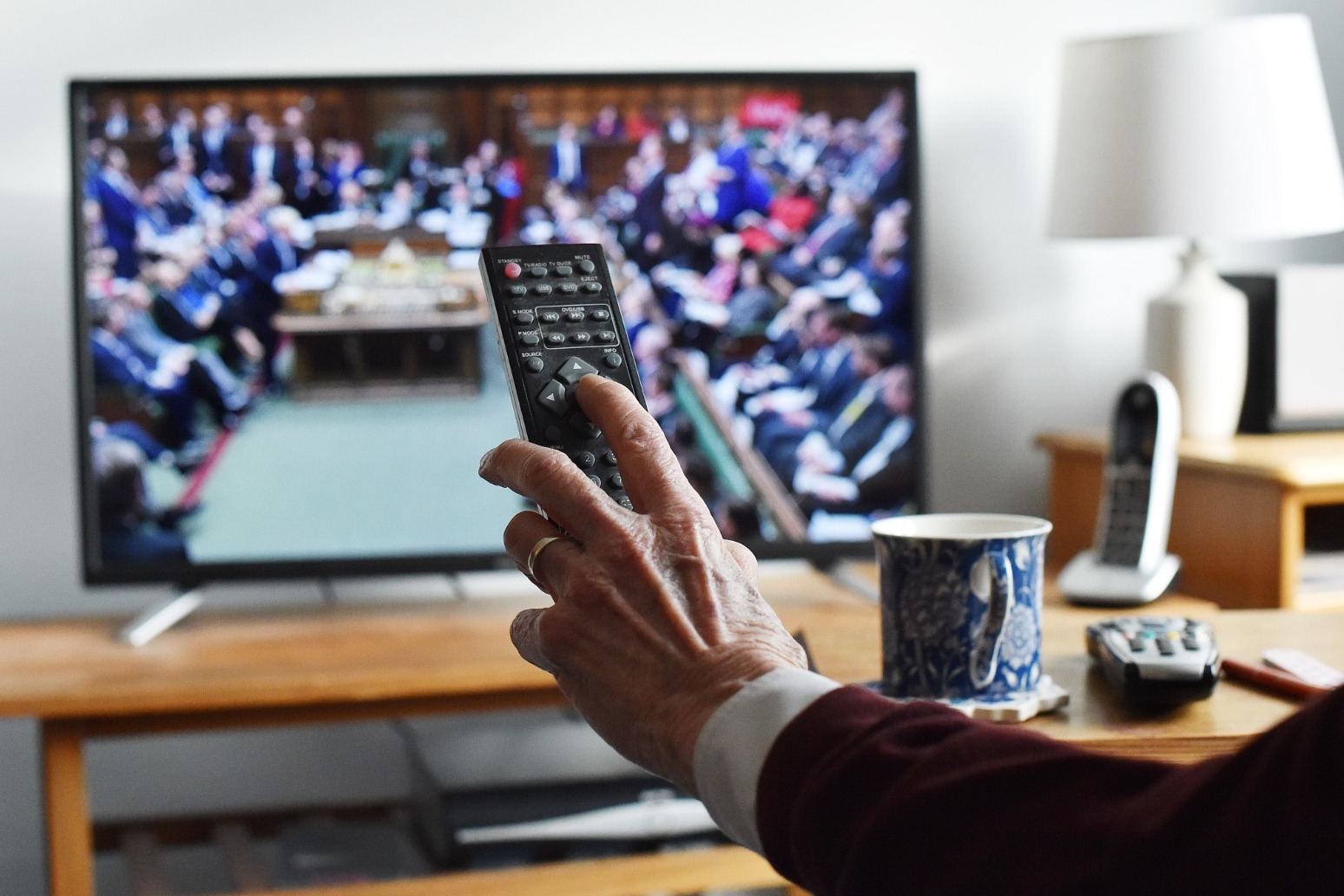
Universal household levy offers viable alternative to BBC licence fee – report
A universal household levy could offer a viable alternative to the BBC licence fee, a new report has suggested.
The Lords Communications and Digital Committee said the model, in which each household would be required to pay a flat fee regardless of consumption, could provide the broadcaster with “predictable and sustainable levels of income”.
In a report into the future funding of the BBC, the committee said it would need to be means-tested to make it fairer than the current model, with linking the fee to council tax a way of achieving this.
This method has been adopted in Switzerland and Germany.
The committee also urged all parties to consider a hybrid model in which public service content would be publicly funded, while other programming, such as high-end drama, would be behind a paywall.
The report said the model would give audiences choice while ensuring the BBC’s core programming remains universally accessible, but warned there would be “significant commercial risk with no guarantee of success”.
In the 73-page document, the committee said many of the advantages of the existing licence fee are “under threat” and the model has become “regressive”.
It ruled out two funding models touted widely during the ongoing debate over the corporation’s funding.
It recommended against entirely subscription or advertising-funded models, as well as ones in which the BBC is fully funded by Government grants.
A purely advertising-funded BBC is “highly unlikely to be viable” and would mean “a multi-billion pound reduction in income for the BBC whilst damaging the rest of the public service broadcasting sector”, which relies on advertising.
BBC programming may also need to scale back to refocus on core public service programming under a significantly reduced budget, the report added.
The committee also dismissed a subscription service model similar to that of Amazon Prime Video or Apple TV+ because it would “generate insufficient income whilst introducing disproportionate barriers to access”.
It said the model would also undermine the BBC’s ability to deliver its services across the UK and come with various technical challenges.
Additionally, the report said the BBC faces “major challenges” in the coming years, which will be characterised by “rising competition and costs, and constrained funding”.
It will also have to compete with “vastly better-funded international streaming giants” while answering questions about its value in a media landscape in which consumers have more and more choice.
It comes after Culture Secretary Nadine Dorries announced in January that the licence fee will be frozen at £159 for the next two years until April 2024.
The minister said she wants to find a new funding model before the current deal expires in 2027 as it is “completely outdated”.
She also announced a review of the BBC’s funding model, which she later said was due to begin before the Commons summer recess on July 22, although this has been thrown into doubt following the resignation of Boris Johnson as Tory leader.
In the report, the committee said it is “concerned” about the lack of a specific plan regarding the upcoming review and warned the Government risked “undermining the legitimacy of any changes it may propose”.
Chairwoman of the committee, Baroness Stowell of Beeston, said: “The greatest threat to the BBC’s future isn’t a battle amongst politicians about the licence fee – though decisions about how it is funded are important to get right and becoming increasingly urgent.
“The real danger is if the BBC doesn’t seize this opportunity to reform and demonstrate why it’s of value to audiences in this new world of endless choice.
“That’s why the committee concluded that, when it comes to what the BBC does, the status quo is not an option.
“There will be choices for the Government and Parliament to make when it comes to funding mechanisms.
“But these decisions must be informed by a bold vision of what the BBC exists for and what it will deliver.
“So first, we are calling on the BBC to define its role more clearly and respond confidently with a plan that is positively ambitious about what and how it will change to serve the public interest in this fast-changing world.”
A BBC spokesperson said: “We welcome the Lord’s report. We agree we need to keep reforming which is what we have been doing at pace.
“Clearly the BBC needs to keep relevant and we welcome the report’s finding that a market failure BBC wouldn’t be a good outcome.
“Beyond that, we are open minded about the future and it is right there is a debate on whether the licence fee needs to evolve and if so, what comes next.”
Published: by Radio NewsHub